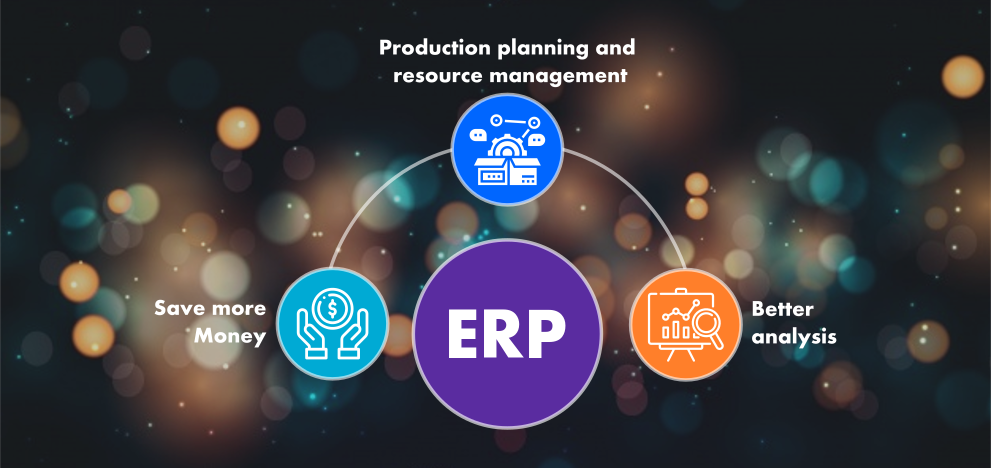Data Management Microsoft BI Oracle BI August 6, 2019

ERP
With the global ERP (Enterprise resource planning) software market expected to be worth approximately around $41.7 billion by the next fiscal year, the impact of these systems is evident. While that number is impressive, those who’ve never utilized any form of the software may find it difficult to understand why it is important to their business, let alone an integral part of it. But as globalization squeezes the markets dry for many industries, it’s essential to seek out any and all utilities to give your institution a competitive edge over the others. For many companies, this is achieved through the use of an ERP software.
What are the Uses of ERP?
ERP systems are utilized by organizations looking to manage their business functions within a centralized and integrated system. ERP systems are mostly utilized by companies working within the supply chain industry to help keep track of all the entities of manufacturing and distribution. However, ERP can be also be used by a wide spectra of businesses including those in healthcare, NPOs, construction and hospitality. Any institute needing to manage their staff, customers and inventory can all rely on ERP benefits.
ERP stores all entered values into a single database, allowing all departments to access and use the same information at their disposal. Additionally, all this data can be organized, analyzed and made into informative reports. ERP systems bring together CM (customer management), HR (human resource), BI (business intelligence), FM (financial management), inventory and supply chain capabilities under the roof of one system.
Why Use ERP?
An ERP software is primarily used to manage a number of business functions, but how is it any better than the other solutions out there? Even though enterprise resource planning may have similar goals to the other solutions, its unique features make it a distinctive competitor in the software industry. Here are three critical reasons stressing on the importance of ERP systems and why they should be considered by any organization who hasn’t considered it so far:
1. Save more money
ERP packages are a big investment despite the profits a corporation makes. For most cases, the handsome cost alone can make it seem unlikely that the program would actually save your organization any money at all. But once you get past the sticker shock of the package price, it’s easier to see how ERP systems can provide an excellent return on investment.
ERP systems unify the vast magnitude of the systems present that may currently be fragmented in your organization. Your staff will be able to access and use all the necessary utilities for their job from one centralized system.
2. Improve your production planning and resource management
Apart from managing your inventory, ERP systems also mandate the manufacturing side of your company as well. ERP provides insight into all operations of the industry. This enables users to optimize production and downtime schedules, and also proper equipment and labor to maximize capacity. Additionally ERP systems plan and properly schedule maintenance checks such that they are not parallel with production hours to avoid any and all unexpected system down times.
3. Better analytics
A centralized structure to store data aids in improving your analytics and reporting. Since an ERP records and stores all the data users input, it makes for an excellent BI tool. ERP software enables your team to generate various reports at the soonest with advanced technical insights. Reports that could take valuable days of research and compilation. With an ERP, it takes just minutes.